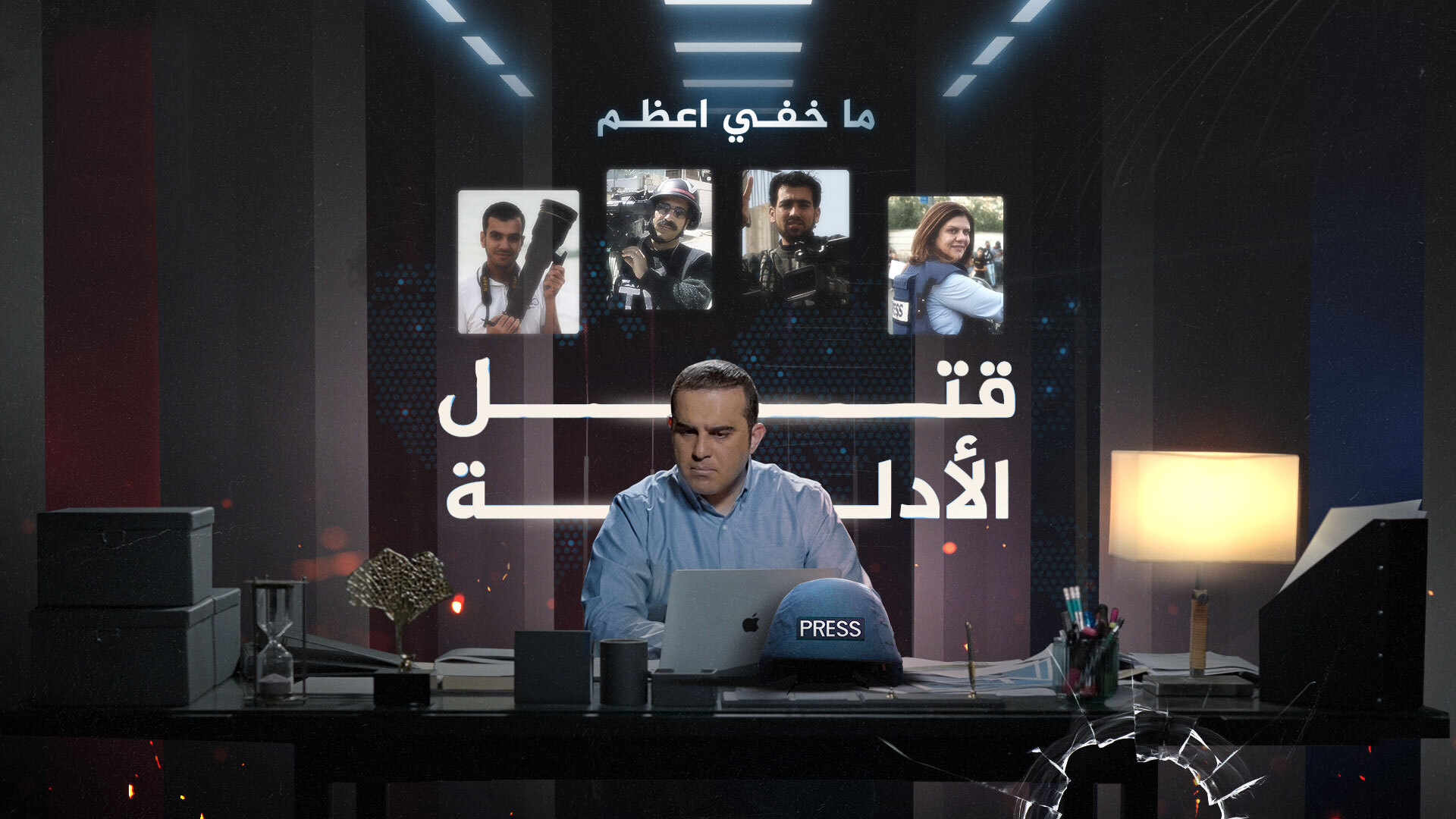International experts and investigators who spoke to the program "What is hidden is greater" confirmed - with evidence - that the assassination of Al-Jazeera correspondent in Palestine Shireen Abu Akleh in May last year by Israeli occupation soldiers was deliberate.
Stephen Beck, a former consultant in the FBI's Audio and Video Analysis Unit, said that according to his calculations, Shireen's shooting a year ago was between 180 meters and 200 meters away, and that there was a group of IDF soldiers 200 meters away at that intersection, where the journalist and photographer were.
The American expert, who analyzed the video and audio clips of the assassination, added that "the audio analysis of the bullets and their directions settled the controversy about their shooting," stressing that the shooting of Shirin during her field coverage in Jenin came from Israeli army soldiers and that they were aiming their weapons at journalists.
The FBI took over the investigation into Shireen's case because she is a U.S. citizen. According to information obtained by the program, an FBI team investigated the field in Jenin, away from the media, in cooperation with the Palestinian Attorney General's Office.
For his part, Chris Cobb Smith, the British special investigator in the case of journalist James Miller – speaking to the episode (2023/5/19) of the program "What is hidden is greater" – that the shot that hit Shirin was "deliberate and not random", speaking of a complete failure to investigate and admit responsibility by the Israeli army and the Israeli authorities. Smith doubted that the person who shot Shirin would be held accountable.
According to the special investigation, which was broadcast by Al Jazeera on the program "What is hidden is greater" to coincide with the first anniversary of Shireen's assassination, a senior official in the former Israeli defense minister's office admitted to American officials responsibility for Shireen's death, telling them that the killing was a mistake and that Israel would not announce or officially admit it.
Impunity
The special investigation dealt with the crimes of targeting journalists and other photographers by the Israeli occupation soldiers without punishing them, including the assassination of Palestinian photojournalist Fadel Shana'a, who works for Reuters, and photographer journalist Moaz Amarneh, who lost an eye to Israeli sniper fire while covering a peaceful sit-in of settler attacks in the West Bank in 2019.
Amarna has not succeeded in proceeding with any legal action against the occupation soldiers before the Israeli judiciary.
Statistics indicate that 55 Palestinian journalists were killed by the Israeli occupation in the last two decades in the West Bank and Gaza Strip.
Documents seen by the "What is Hidden is Greater" program show that Israel's military prosecutor uses the term "military activity" to describe what Israeli soldiers are doing as a pretext to justify targeting journalists and civilians and to exempt officers and soldiers from any legal responsibility.
According to lawyer and expert in Israeli law, Khaled Zabarqa, Israelis consider that whoever is in the theater of hostilities and has been killed or injured, the state is exempt from any responsibility towards him, which was also confirmed by the director of the Palestinian Center for Human Rights, Raji Sourani, by saying that the Israeli Attorney General's Office has never investigated a case or crime committed by the occupation soldiers and is working to cover up the crime and give it legal cover.
It is noteworthy that Al Jazeera Media Network submitted the case of the assassination of Shirin Abu Akleh by the Israeli occupation forces to the International Criminal Court in The Hague. The Palestinian Journalists Syndicate, in cooperation with the International Federation of Journalists (IFJ), also filed a complaint with the Public Prosecutor of the Criminal Court, which included, in addition to the Shireen assassination file, the targeting of Palestinian journalists.
According to the director of the Palestinian Center for Human Rights, the ICC director-general practices political selectivity.
The Criminal Court's Public Prosecutor's Office rejected the request of "What is hidden is greater" to conduct an interview about the fate of the killing of journalists in Palestine.

